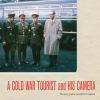-
-
By Adams, Ianc1999., Stoddart Publishing Co. Limited Call No: 327.12 W335a Availability:1 of 1 At Your Library
-
-
c2005., Coach House Books Call No: 811.54 C135a Edition: 1st ed. Availability:1 of 1 At Your Library
-
-
Call No: 327.71 W462a Availability:1 of 1 At Your Library Summary Note: Welsh, born in Regina, is a professor of international studies at Oxford University. She examines Canada's position, both present and future, within the two spheres of North America and the wider world, assessing the challenges that our country faces.
-
-
c2013., Adult, Alfred A. Knopf Canada Call No: 973.7 B789b Availability:1 of 1 At Your Library Summary Note: This book explores Canada's engagement in the American Civil War and helps to understand better both the war and how the British colonies saved themselves by becoming a nation.
-
-
By Angus, Ianc1997., McGill-Queen's University Press Call No: 971.064 A595b Availability:1 of 1 At Your Library
-
-
c2011., McGill-Queen's University Press Call No: QWF 778.9 L278c Availability:1 of 1 At Your Library
-
-
2019., University of Regina Press Call No: QWF 327 S679f Availability:1 of 1 At Your Library Summary Note: In the summer of 1968, Mary Soderstrom and her husband loaded up their VW Beetle and immigrated to Canada from the United States. The contrast between their new home and their old led to a long-running reflection on what makes the two countries different. How could two places that are similar in so many ways be so disparate in others? In Frenemy Nations, Soderstrom answers this question by addressing a range of geographical "odd couples": including the United States and Canada; New Hampshire and Vermont; Alberta and Saskatchewan; Haiti and the Dominican Republic; Scotland and Ireland; Rwanda and Burundi; and more. Through it all, Soderstrom shows how tiny differences--in geographic features, colonial histories, resource competition, education, women's roles, language, and migration--can have outsized effects on how polities develop.
-
-
-- Water Incorporated.2005., Lanctôt Éditeur Call No: FR Fic Bur Availability:1 of 1 At Your Library
-
-
-- Canada and the U.S. empire.c2007., Doubleday Canada Call No: 971.07 M173h Availability:1 of 1 At Your Library
-
-
-- Canada and the Civil War plots against Lincoln.2023., Adult, Alfred A. Knopf Canada Call No: NEW 973.7 S551n Availability:1 of 1 At Your Library Summary Note: A riveting, dramatic account of the years, months and days leading up to the assassination of Abraham Lincoln, revolving around the unexpected ways Canadians were deeply involved in every aspect of the American Civil War. Canadians take pride in being on the “good side†of the American Civil War, serving as a haven for 30,000 escaped slaves on the Underground Railroad. But dwelling in history's shadow is the much darker role Canada played in supporting the slave South and in fomenting the many plots against Lincoln. The North Star weaves together the different strands of several extraordinary Canadians and a handful of Confederate agents in Canada as they all make their separate, fateful journeys to the night of the assassination on April 14, 1865. They ended up crossing paths with Lincoln or his assassin John Wilkes Booth, as they were caught up in the maelstrom of history. The book shines a spotlight on the stories of such intrepid figures as Anderson Abbot, Canada’s first Black doctor, who joined the Union Army; Emma Edmonds, the New Brunswick woman who disguised herself as a man to enlist as a Union nurse; and Edward P. Doherty, the Quebec man who led the hunt to track down John Wilkes Booth. We also meet the wealthy men who aided and supported the Confederate side, such as Toronto aristocrat George Taylor Denison III and banker and Montreal mayor Henry Starnes. Sher creates vivid portraits of places we thought we knew. Montreal was a sort of 19th-century Casablanca of the North: a hub for assassins, money-men, mercenaries and soldiers on the run. Toronto was a headquarters for Confederate plotters and gun-runners. The two largest hotels in the country became nests of Confederate spies. Meticulously researched and richly illustrated, The North Star is a sweeping tale that makes long-ago events leap off the page with a relevance to today.
-
-
c1999., Oxford University Press Call No: IND 323.1197 A392p Availability:1 of 1 At Your Library Summary Note: "Peace, Power, Righteousness is a political manifesto - a timely and inspiring essay that calls on the indigenous peoples of North America to move beyond their 500-year history of pain, loss, and colonization and make self-determination a reality. Taiaiake Alfred, a leading Kanien kehaka (Mohawk) scholar and activist, urges Native communities to return to their traditional political values to educate a new generation of leaders committed to preserving indigenous nationhood. Only a solid grounding in traditional values and the principles of consensus-based governance will enable Native communities to heal their present divisions, resist assimilation, and forge new relationships of respect and equality with the mainstream society. Familiar with Western as well as indigenous traditions of thought the author presents a powerful critique of the intellectual framework that until now has structured not only relations between indigenous nations and the state, but the internal politics of colonized communities. Yet he does not condemn non-indigenous people: instead, he invites them to transcend historical prejudices and join in the struggle for justice, freedom, and peace."--BOOK JACKET.
-
-
c2000., HarperCollins Call No: 971.0648 S613s Edition: 1st HarperCollins ed. Availability:1 of 1 At Your Library























